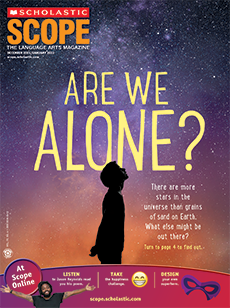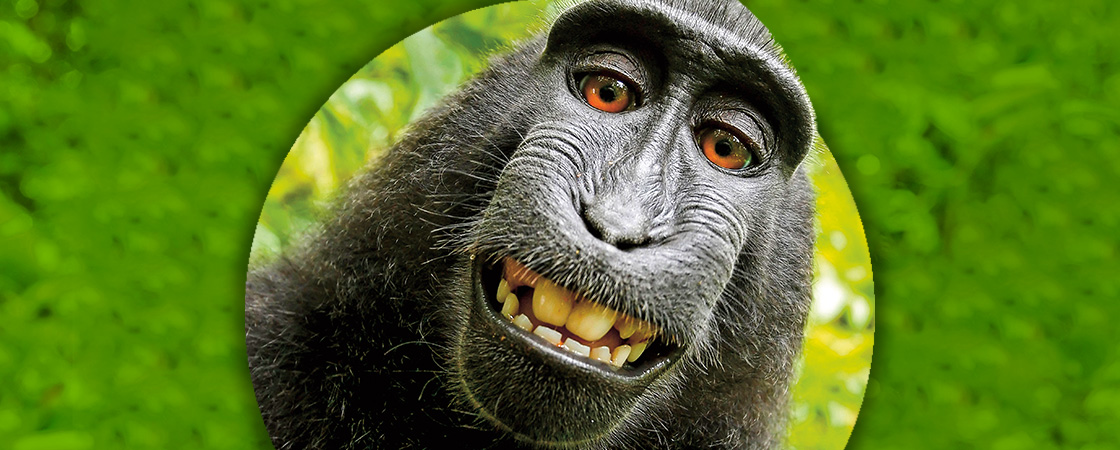In 2011, wildlife photographer David J. Slater was in a jungle on the island of Sulawesi, in Indonesia. He was photographing crested black macaque (muh-KAK) monkeys. The species is critically endangered, and Sulawesi is one of the last places they live in their natural habitat. Slater hoped his photos would bring attention to the monkeys and the threats they face.
Slater followed the macaques. He followed them through the jungle. Three days passed. He still hadn’t gotten a close-up picture of a macaque’s face. Then he had an idea: set his camera on a tripod and let the monkeys play with the camera themselves.The result was more spectacular than Slater ever could have imagined. The animals stared into the camera’s lens and made faces at their reflections. They pushed the camera’s button again and again. Most of the photos were blurry, but one was a perfect selfie of a smirking macaque.

